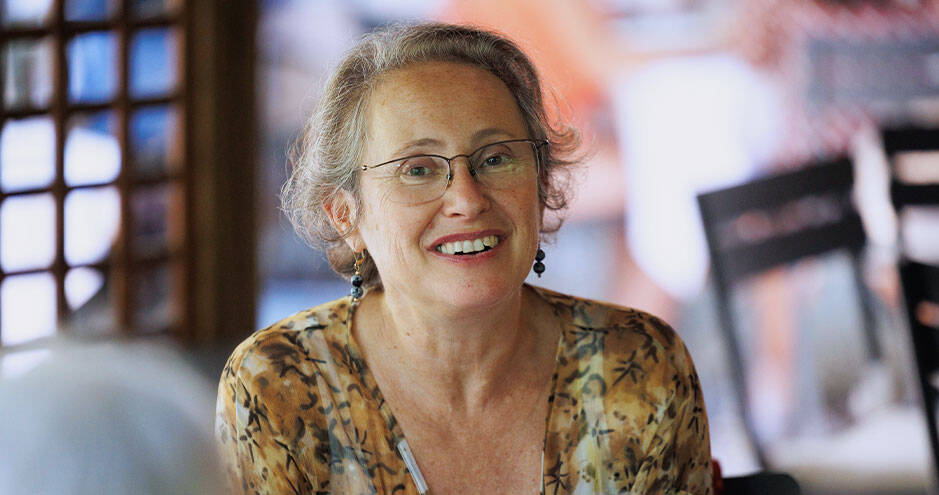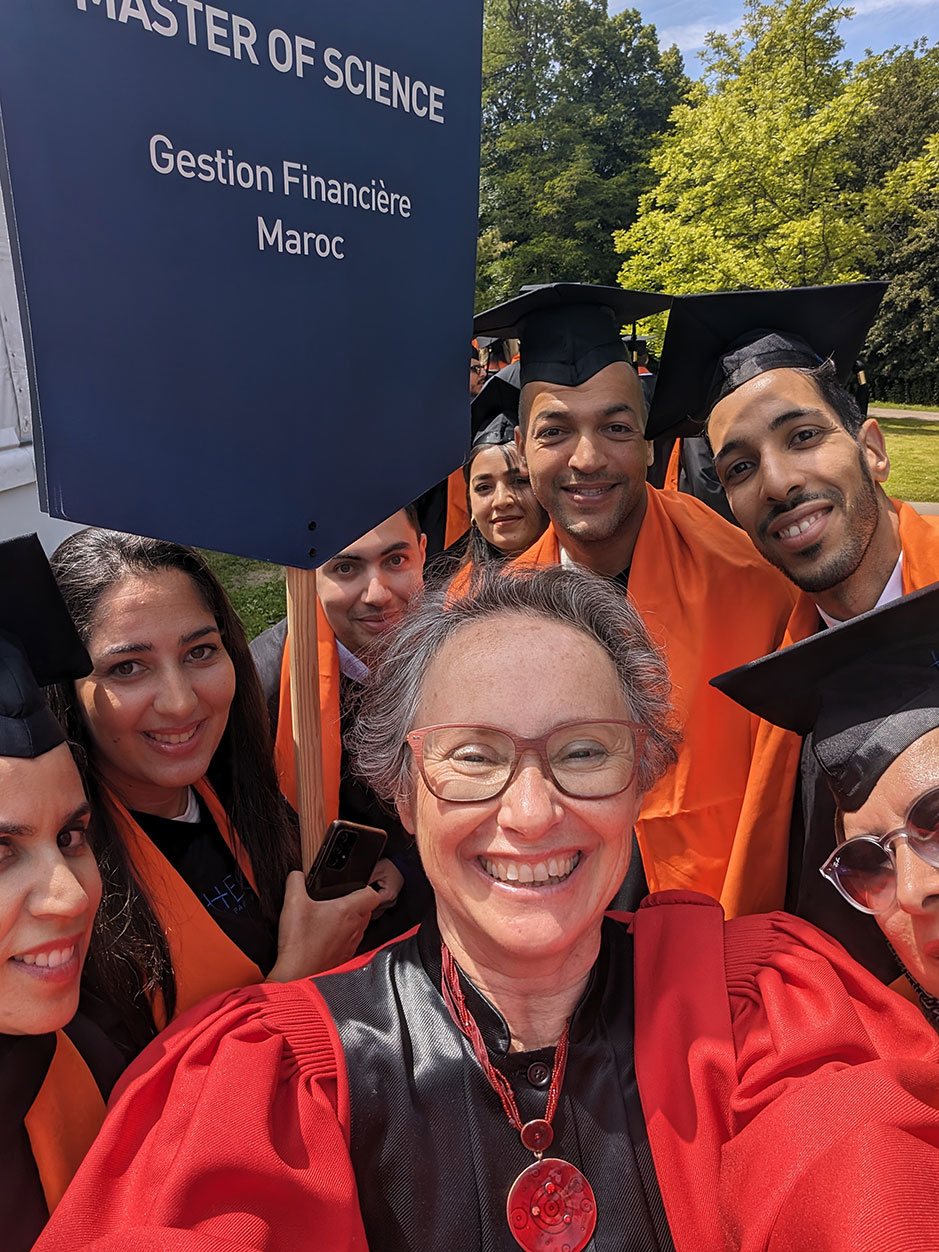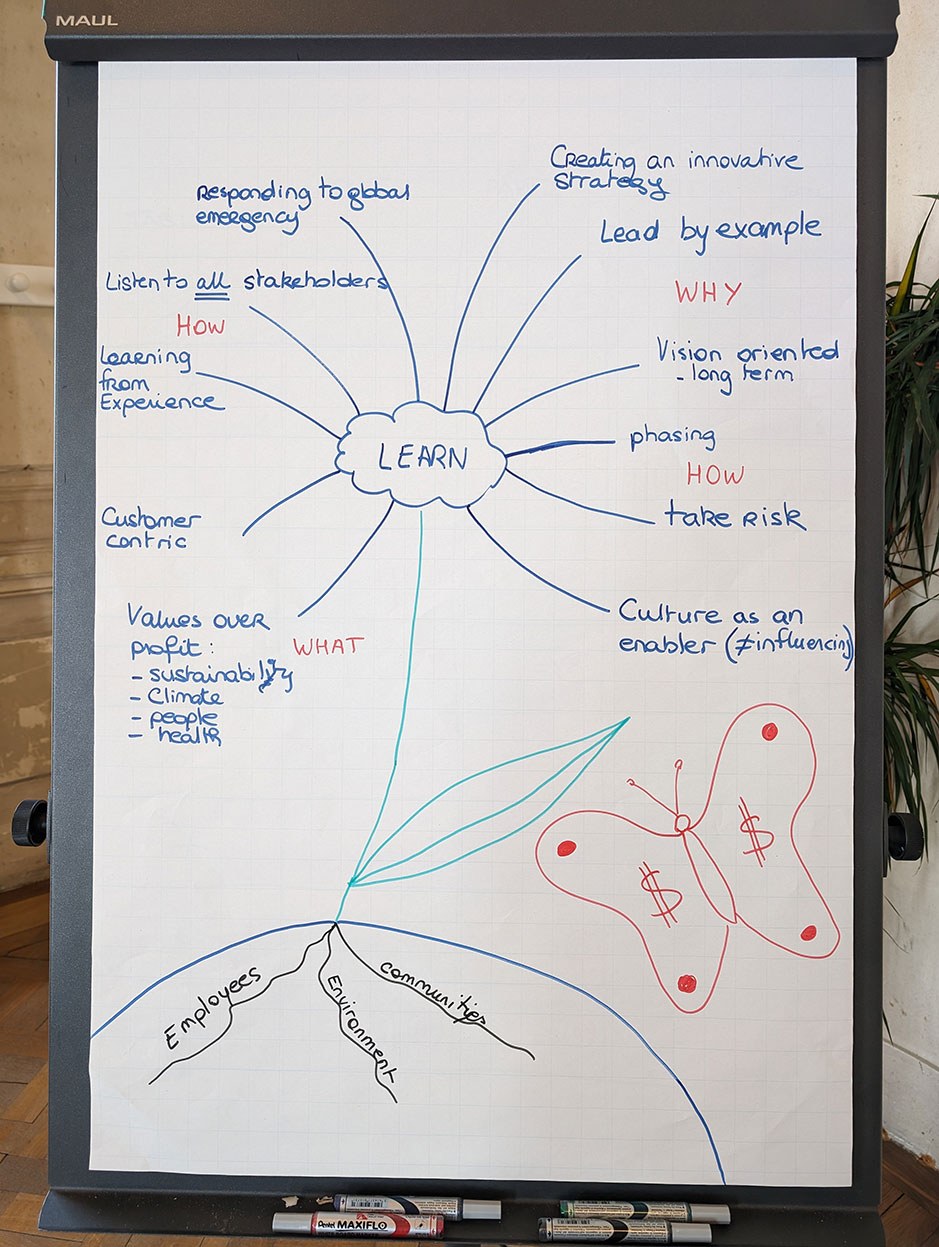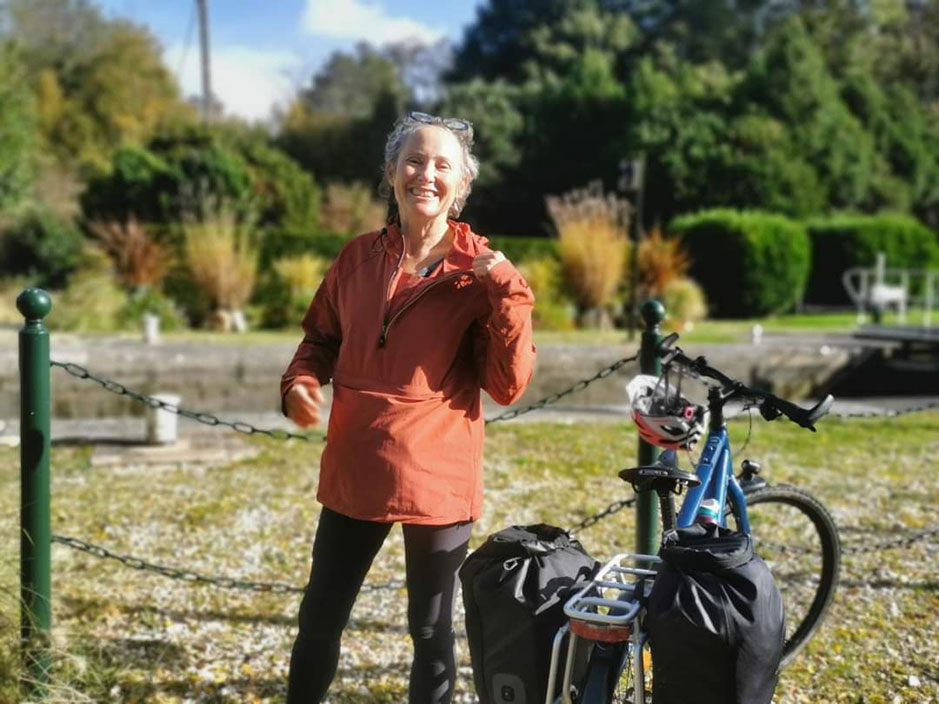Uncovering Executive Faculty: Anne Frisch, the Playful Finance Professor with a Feminist Sensibility
On a sweltering summer day, inside an HEC Paris classroom, Anne stood at the front, ready to tackle the intricacies of sustainable finance. Before her sat fifty seasoned executives from the oil and gas industry, all poised for a typical lecture. But Anne had something else in mind. With a mischievous smile, she declared, "Today, I am the battery of an electric vehicle, and you all are various components of the value chain." Meet Anne Frisch, the Academic Director of the Business Performance Management program at Executive Education.

From rebellion to academia: science is in the numbers
Anne’s journey into the world of academia was far from linear. Growing up in a family of physicists and mathematicians, she was surrounded by science, logic, and a world of rationality. But Anne, an assumed rebel, was determined to carve her own path.
"So, I grew up in a very rational environment where science is the essence of life. And of course, I was a rebel". "I was pretty good at maths but hated physics. The one thing I said I’d never become was a university professor, like everyone in my family."
Instead, Anne chose the world of business, diving headfirst into sales, marketing, and finance. Her career took her through high-risk industries like the chemical industry and nuclear energy, where she discovered her knack for finance. Yet, even as a CFO, Anne’s rebellious spirit shone through. "The only thing special about me was that I’ve always spoken openly about what I thought. I cannot just obey," she says with a shrug.

Entrepreneurship is not about "Money, Money, Money"
Although ABBA's classic hit "Money, Money, Money" is on her finance teaching playlist, Anne Frisch’s approach to entrepreneurship journey is far from being about profit. "Most entrepreneurs won’t become rich,” Anne candidly states plainly.
“When I transitioned from a well-paid executive CFO role, I knew I would take a 50% salary cut and probably a few years without any salary. But I was very clear about my purpose and my goal."
For Anne, entrepreneurship is about passion, vision, and breaking free from the “golden prison” that money can sometimes become. “Money can be a prison for some people, and I don’t like prisons,” she adds with a mischievous smile. “Even if it’s a golden one.”
Her entrepreneurial journey in education is about creating experiences that transcend traditional learning through business games and simulations. “It’s a powerful way of learning because people are engaged—they’re like children, learning and playing at the same time, but focused, and then the learning is much deeper,” she explains.

"Simulations create conditions like real experiences, with all their complexity."
Finance can be fun: unleash your “ame d’enfant”
For Anne Frisch, the key to effective teaching is rooted in a simple yet profound truth: “We’re just like children. It’s the same. I think children are right, and we need to reconnect with ‘nos âmes d’enfants'."
This philosophy is evident in Anne’s classroom, which is anything but your typical lecture hall.
“Teaching with games and simulations has become my signature approach. This is who I am. I can’t envision myself teaching any other way,” she shares.
The goal is to maintain a dynamic and engaging atmosphere, blending fun with academic rigor in a way that leads to deep, lasting learning. “I’m always careful to keep a balance between fun and games and top-down teaching,” Anne explains.
Her teaching rule is both simple and effective: “Never more than 20 minutes of lecture or theory, and never more than 25% of the entire day devoted to lecture and theory. The rest is practice, which aligns closely with HEC’s teaching method, particularly through case studies.”
One of Anne’s favorite techniques is role-playing. For example, she might teach the principles of the circular economy by simulating the lifecycle of an electric car battery. “I role-play that with a room full of 48 executives from the energy sector—one might be at the mine, another at a giga factory—and we all have a lot of fun. And they get the fundamental concepts,” she explains.
Tales from a Lefty. And a Righty
When it comes to Anne Frisch's artist's soul, there's no choosing between the right or left brain. “I have an aunt who’s deeply dedicated to art, and she used to say to me, ‘You use the right and left sides of your brain equally!’” Her love for artistic pursuits, as well as for numbers, reflects this balance.
Anne writes poetry, plays the piano, and dreams of one day becoming a songwriter. With a twinkle in her eye, she shares, “I recently wrote a feminist poem. It’s called ‘Social Security Number.’”
The poem was inspired by a realization that struck her one morning. “Maybe you’ve noticed that in France, the first digit of your social security number is a two if you’re a woman. That’s the system here.
But why should being a boy or a girl be reduced to a number? Sure, we need numbers for social security, but it could be a date of birth or even a random number. The fact that, as a woman, your social identity is ‘second’—I don’t agree with that,” Anne reflects.
“It took me a while to realize this, and one morning I woke up feeling angry about it. So, I wrote my anger into a poem. I’m not usually very angry, but sometimes it’s that anger that drives change.”
About some companies’ elephant in the room
Anne Frisch is not one to shy away from addressing the "elephant in the room," challenging workplace structures that fail to serve women. Her feminist activism is woven into her teaching and her personal philosophy.
“The issue might start with something as seemingly trivial as the ‘coffee thing’ when you’re very young, but it becomes much more subtle as you grow older, especially in meetings,” Anne reflects. “You’re in a room full of men, and finding space to speak your mind is hard. It’s like all the men have spoken, and you’ve not yet had your chance. At some point, you have to assert yourself and say, ‘I have something to say. And please, don’t interrupt.’”
Anne’s advice for dealing with prejudiced bosses? “Just walk away and let them regret you.”

As our conversation winds down, Anne leaves us with a poetic reflection on life inspired by a personal poem:
“Down the Loing river,
Far from the fury of bombs,
You count the blue herons, the white egrets, and the banana trees,
Which was there first?
Who cares?
They all settled together.”